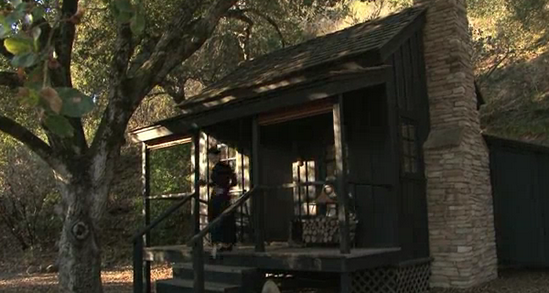
OVERVIEW
MANAGEMENT
PERFORMANCE
POSSIBILITIES
CAPITALS
ACTIVITIES
ACTORS
BURGESS
Metrics |
|
Burgess COMMENTARY |
|
5 Economic Alternatives to the Cult of GDP
It's hardly controversial to suggest that economic growth has been closely tied to cheap and readily available fossil fuels and other natural resources. But as we start to comprehend the twin facts that oil is likely to become ever harder and more resource intensive to come by, and that the Earth and its atmosphere does not have a limitless capacity to absorb the crap we pour into it, the cult of economic growth at all costs starts to look a little shaky. True, some people argue that between dematerialization of our economy and a massive scale up of renewables, it is perfectly possible to pursue green growth for the foreseeable future, but others are arguing it's time to move to a post-growth society. Either way, it seems incontrovertible to suggest that measuring our well-being by Gross Domestic Product (GDP) alone is about as helpful as assessing someone's diet based entirely on how much they eat—and with the assumption that the more they eat, the better off they'll be. Luckily, there are plenty of alternatives to the cult of GDP. Here are a few of our favorites.
No Growth Economics We asked before what a no growth economy would actually look like, and while some folks continue to deride the concept as something close to heresy, the recent financial crisis has brought the concept of no growth or steady state economics back into the spotlight. By learning to live within ecological limits and restricting our economic activity to what can be reasonably achieved within the Earth's carrying capacity, proponents argue that we might actually find ourselves freed from the slavish devotion to the economic treadmill. But it's important to note that our economy would not disappear—it would just learn the art of moderation. In fact, in a recent interview with Transition movement founder Rob Hopkins, steady state economy expert Peter Victor even suggested that capitalism might be possible without economic growth—it wouldjust look very different to the system we have today.
GDP-alternatives-gross-national-happiness.jpg'>
Gross National Happiness It's often been noted that there is nothing wrong with GDP in and of itself, it's just that it has been elevated from a simple measure of overall economic activity into something it was never intended to be—a proxy metric for our collective well-being. And as noted in my post on why masturbation is an economic act, it does a fairly poor job of actually measuring how happy and healthy we are. When there's a gigantic oil spill, and crews are called to clean it up and lawyers are called to sort out the mess—GDP jumps. When a war kicks off and there is increased spending on weaponry and health care, GDP again ticks upwards. But when a neighbor helps our a neighbor simply because it's the right thing to do, GDP doesn't bat an eyelid—in fact it sometimes takes a nose dive as paid services are replaced by an act of simple human decency. In short, GDP fails to differentiate between 'good growth' and 'bad'. But progress is being made on more accurate metrics of our actual quality of life—and measuring happiness is becoming a decidedly serious business. Some folks have put forth the concept of National Accounts of Well-being as a means to augment the more values-neutral measurements of GDP. Other versions of this concept include the tiny Himalayan kingdom of Bhutan's championing of Gross National Happiness as an alternative measure of progress, and the New Economics Foundation's Happy Planet Index, which measures both overall human happiness and ecological sustainability. Green Growth and The Economics of Biomimicry For those who believe that economic growth and ecological sustainability are not mutually exclusive, there is an unprecedented challenge of how to reform our extractive economy so that it becomes a nurturing one. From pursuing aggressive Global clean energy goals to restoring natural areas as a form of economic stimulus, there is no doubt that there is much work to be done which would contribute to economic growth and our mutual well-being. But if such approaches are going to overcome the limitations of GDP, we'll need to reshape our entire economic system so that it literally functions like an ecosystem—with the outputs from one enterprise or industrial process becoming the inputs of another. From a former meat packing plant that's turning waste into local food, energy and jobs, to hyper-localized, closed loop paper recycling modeled on natural systems, we've seen tantalizing examples of what that might look like. But to become a system wide change, we'll need to set up market signals to shape corporate and consumer behavior—forcing polluters to pay their way; rewarding entities who improve well-being and protect the environment; and emphasizing the fact that our entire economy is 1005 dependent on the health of our environment and our human culture. Whether such reforms will be enough to keep the juggernaut of growth still rolling remains to be seen, but it will require a fundamental shift from our blinkered focus on GDP alone.
Plenitude Economics and the Sharing Economy In a system where too many people are out of work, and too many others are working too hard, economist Juliet Schor suggests it is time we learned to share. In her vision of a Plenitude Economy, we pursue full employment by shortening our work weeks and freeing up more time for leisure, DIY projects, self sufficiency, cottage industries and actually living our lives. The result will slightly shorter hours for those who are currently working, actual employment for those who want to be working, and an increase in well-being for all. In many ways, this vision chimes well with the massive growth in collaborative consumption and the sharing economy. Just because you need a job does not mean you want to be working a 5 hour work week. Just because we need to get from A to B does not mean we each need to own a car—the massive growth of Zipcar alone has shown that we can fuel economic activity, provide the service that people are looking for, with a fraction of the natural resources at a greatly reduced cost to the end consumer. And what does the end consumer do with the money saved? Well they can either jet off to Thailand for a 3 week vacation—in which case the problem with GDP remains—or they can take those reduced costs and free themselves to live a slightly simpler, less stressful life. Which leads us to...
It's Not the Economy, Stupid I've argued before that green lifestyle choices will never save us, and that we need collective, systemic fixes for a collective, systemic problem. Nevertheless, the choices we make in our everyday lives reenforce the values of our economic system. So each time we choose to not go shopping and decide to help out a neighbor instead, or hang out with our family, or even simply save some emissions and take a nap—we are sending out a message that there is more to life than the health of the economy. Whether it's a 16-year-old building a tiny house for a mortgage-free future, or a brave decision to only own 100 things, by stepping off the economic treadmill we can not only free up our own lives—but show others that it's OK to stop and breathe from time to time too. Our relentless focus on GDP has become an unhealthy obsession and a perverting influence on human well-being and happiness—but only because we let it. If we take a step back and peak beneath the Emperor's cloak, we may be surprised at what we see. After all, it's kind of fun to get naked from time to time...
Related on TreeHugger.com:
|
|
Sami Grover (@samigrover) ... Business / Economics ... TreeHugger SUSTAINABILITY WITH SASS
April 2, 2012 |
| The text being discussed is available at http://www.treehugger.com/economics/5-philosophies-challenge-gdp-arbiter-human-well-being.html and |
 Chris Brown/CC BY 2.0
Chris Brown/CC BY 2.0


